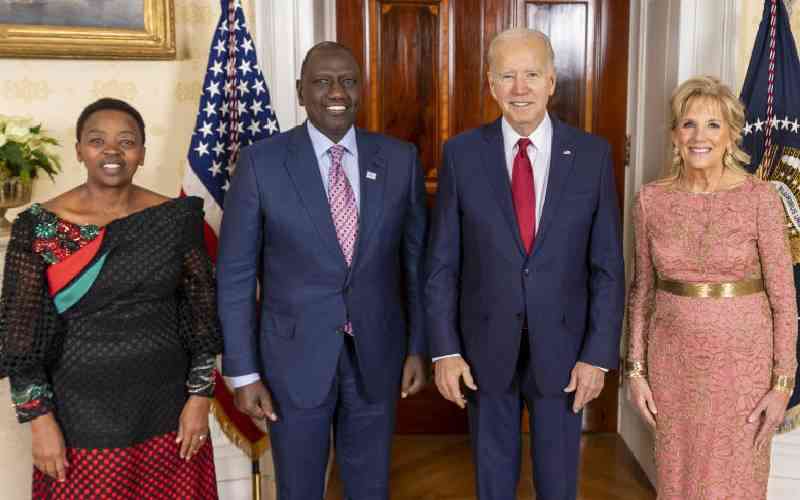×
The Standard e-Paper
Fearless, Trusted News

President William Ruto kicks off his historic US tour at a time the Biden administration plans to step up its security and economic ties with East Africa's largest ally in the face of rising Chinese influence in the region.
President Biden and US First Lady Jill Biden will host President Ruto and First Lady Rachel Ruto on Thursday at the White House.